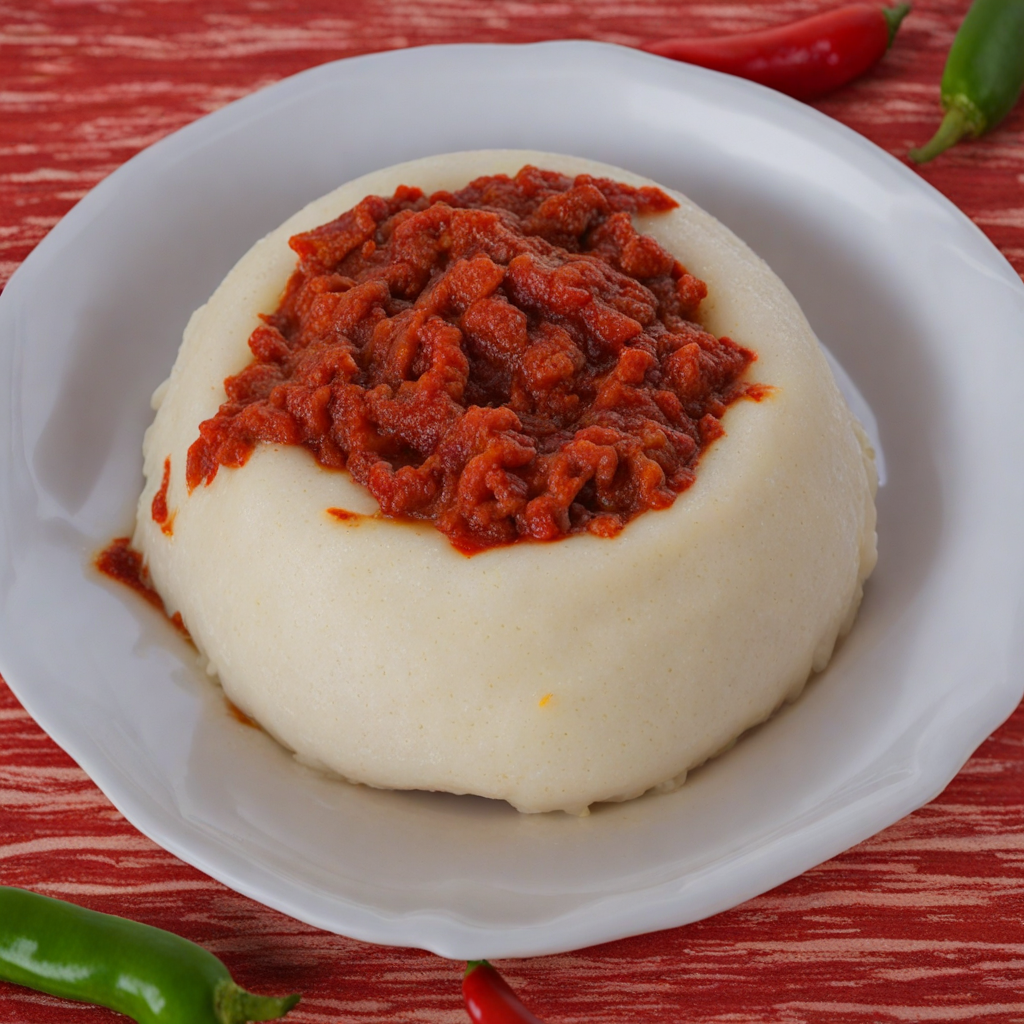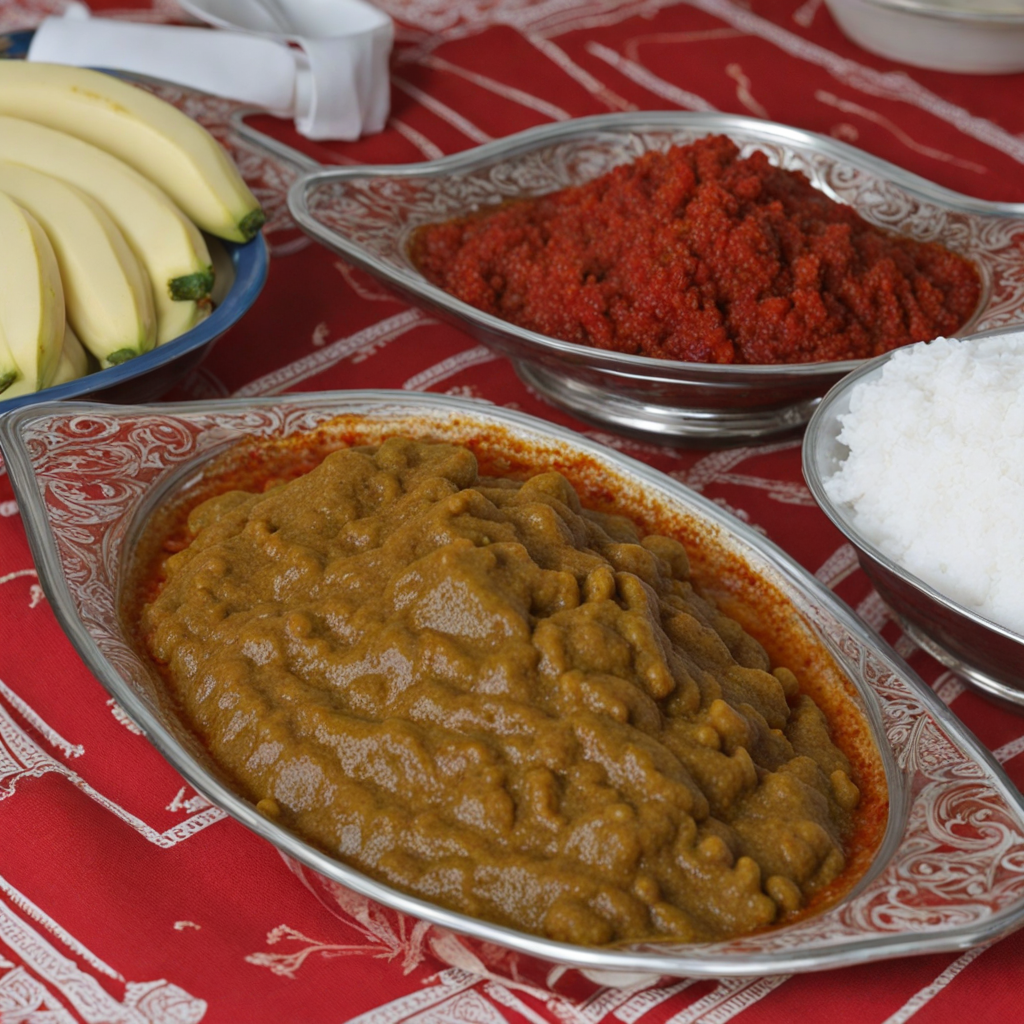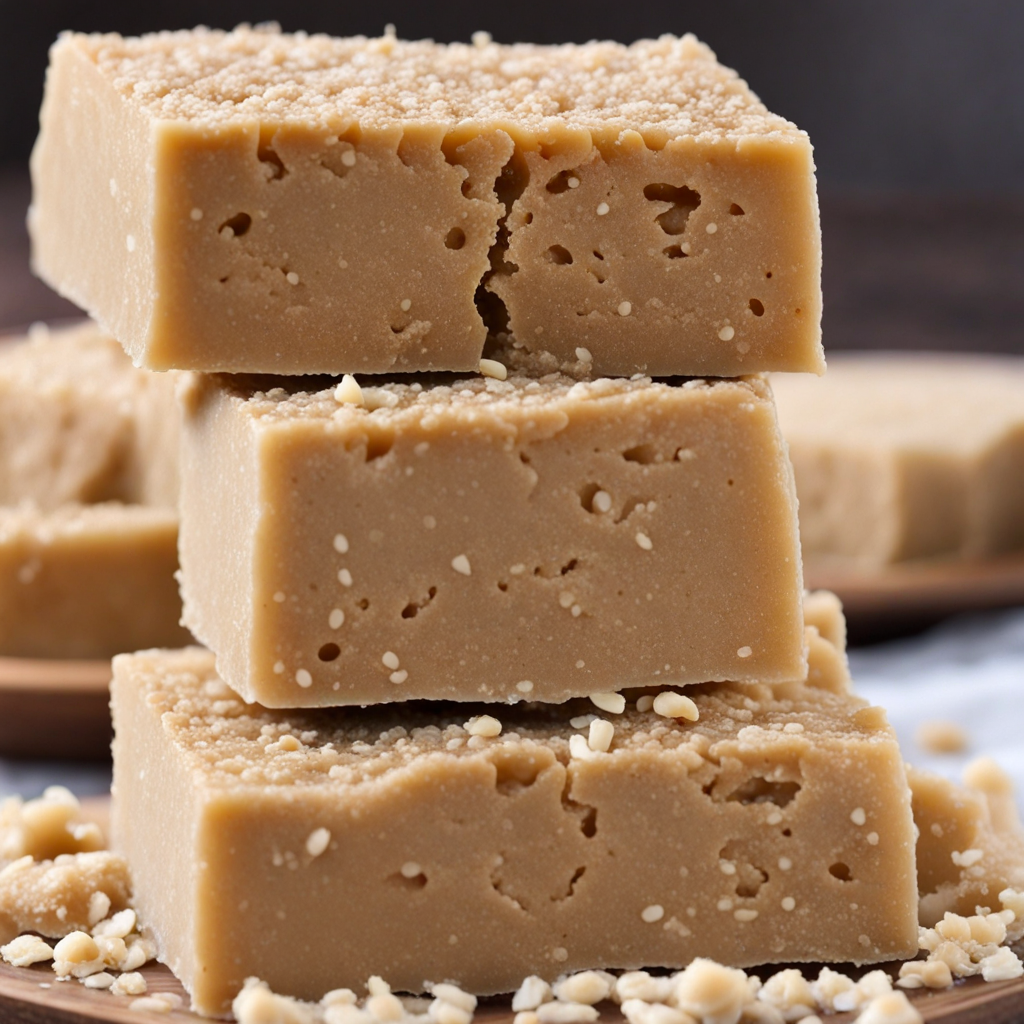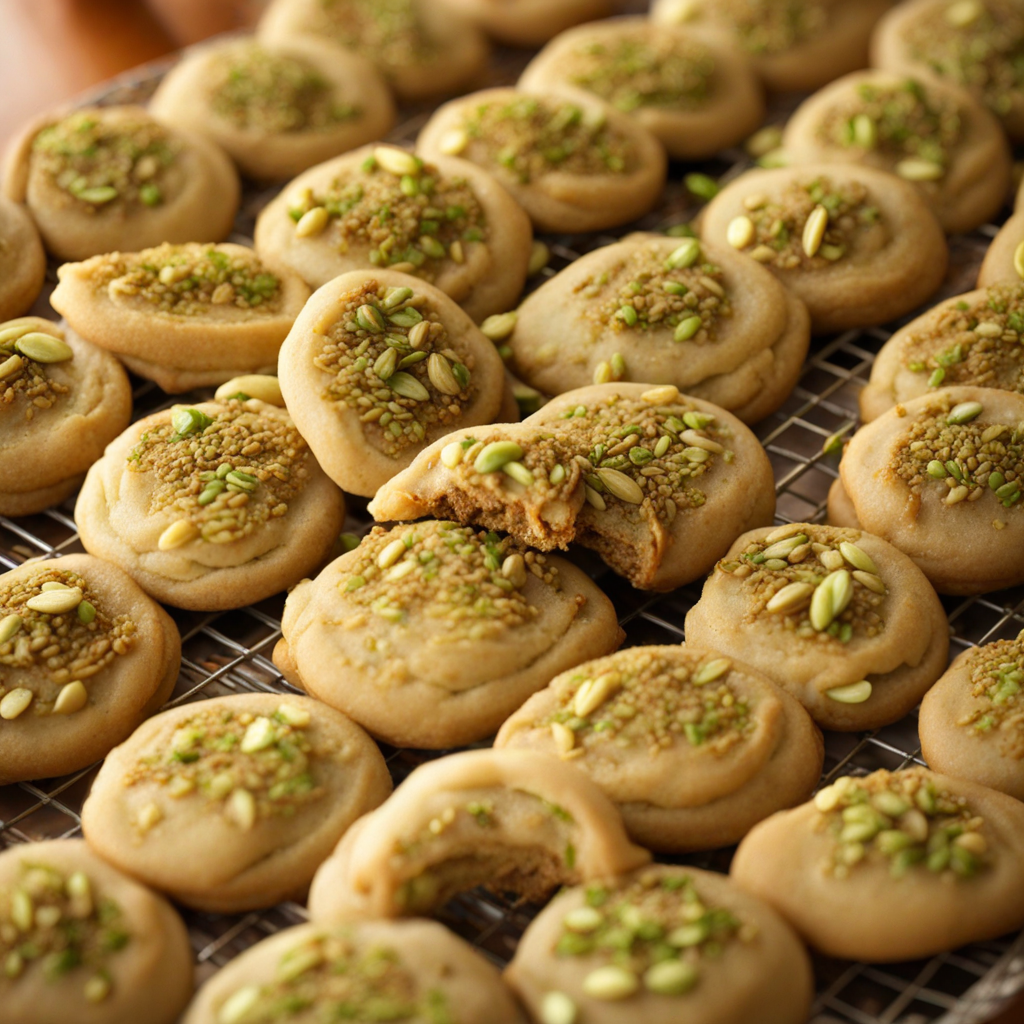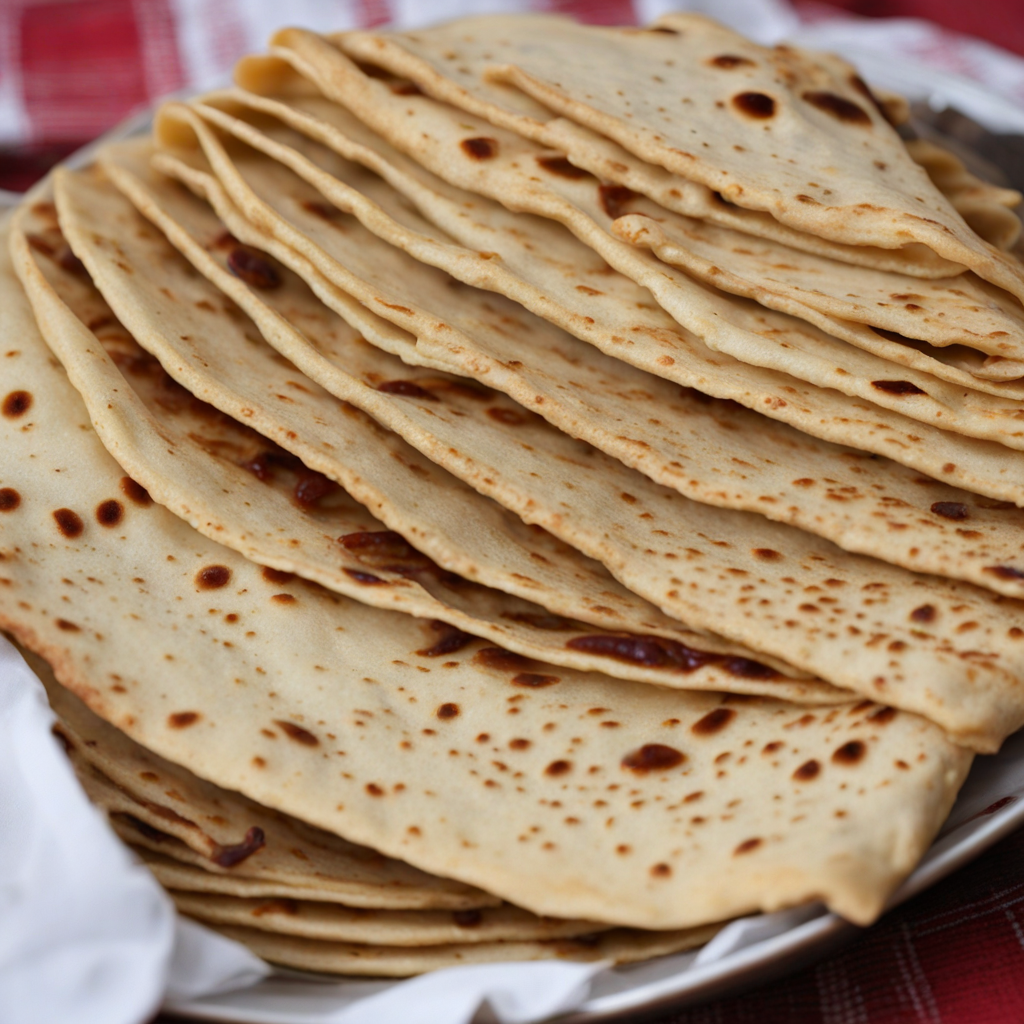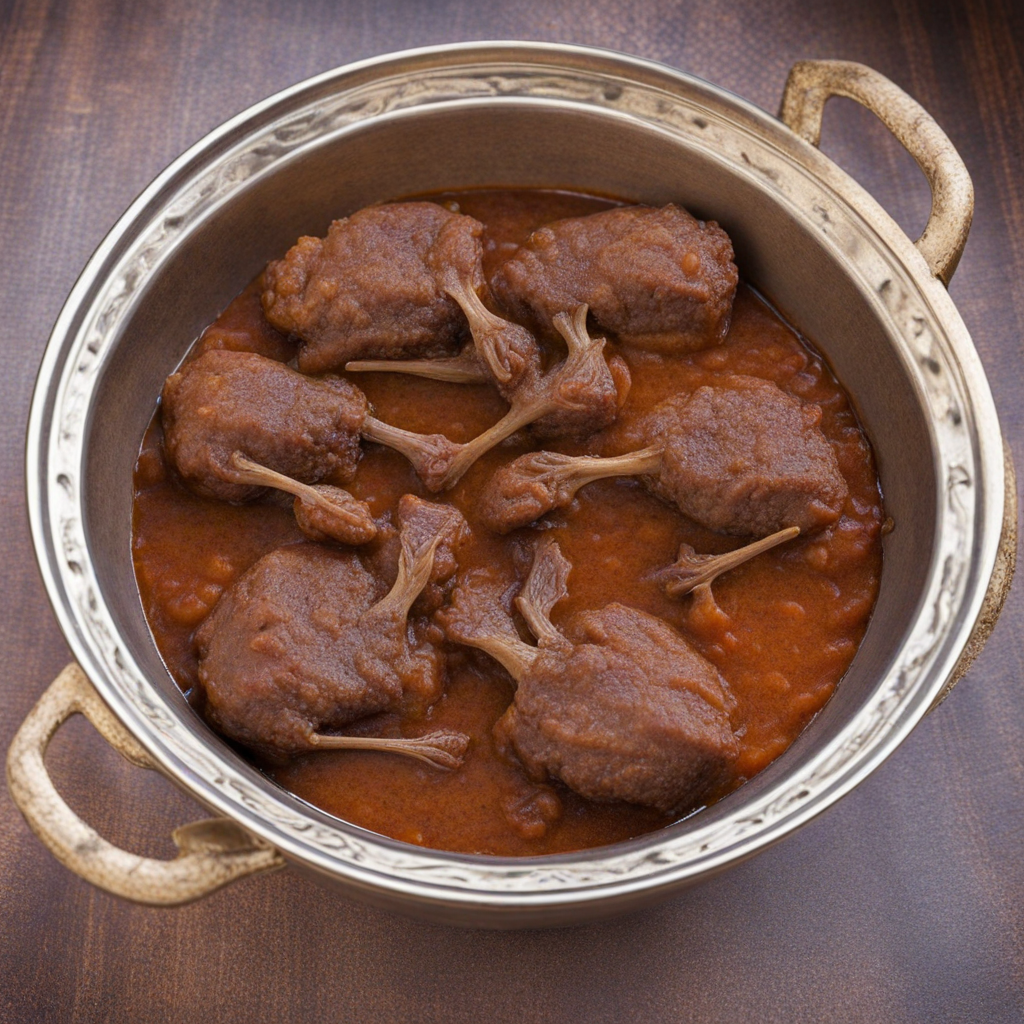Moukhbaza
Moukhbaza is a traditional Sudanese dish that beautifully showcases the rich culinary heritage of Sudan. This delightful meal primarily consists of a robust mix of ingredients, including mashed starchy vegetables like sweet potatoes or pumpkin, which are then combined with spices and seasonings that reflect the local palate. The dish is often enhanced with the addition of ground nuts, such as peanuts or sesame seeds, adding a creamy texture and nutty flavor that complements the base ingredients perfectly. The result is a hearty and satisfying dish that is both nutritious and deeply comforting, making it a staple in many Sudanese households. The preparation of Moukhbaza typically involves boiling and mashing the starchy vegetables until they reach a smooth consistency. Once mashed, a careful blend of spices—including cumin, coriander, and garlic—are incorporated, imbuing the dish with a warm and aromatic profile. Some variations may also include sautéed onions and fresh herbs like parsley or cilantro, which add layers of flavor and brightness to the dish. This fusion of textures and flavors is what makes Moukhbaza a unique experience for anyone seeking to explore Sudanese cuisine. Moukhbaza is commonly served as a main dish, often accompanied by a side of grilled or stewed meat, vegetables, or a refreshing salad. It can be enjoyed with a drizzle of olive oil or a sprinkle of chili powder for those who appreciate a bit of heat. The communal aspect of sharing Moukhbaza with family and friends reflects the Sudanese culture of togetherness and hospitality, making it not just a meal but a cherished social experience. For those looking to embark on a culinary adventure, Moukhbaza offers a delightful taste of Sudan that is sure to leave a lasting impression.
How It Became This Dish
The History of مخبزة (Makhbaza) in Sudan: A Culinary Journey #### Origins Makhbaza, often referred to as "bread" in Sudan, is more than just a staple food; it is a cultural emblem that has woven itself into the very fabric of Sudanese society. The term "مخبزة" is derived from the Arabic word "خبز" (khubz), meaning bread. While bread has a universal presence in many cultures, the specific type of bread we associate with Sudan is unique in its preparation, ingredients, and cultural significance. The origins of Makhbaza can be traced back to ancient civilizations that inhabited the Nile Valley, particularly the Nubians and Egyptians. Archaeological evidence suggests that bread-making dates back over 6,000 years in this region. The early Sudanese peoples, like their Egyptian neighbors, relied heavily on grains such as sorghum and millet, which were ground into flour and mixed with water to create a basic dough. The bread was cooked in simple clay ovens or directly over an open flame, leading to variations in texture and flavor. #### Cultural Significance In Sudan, Makhbaza is not merely food; it embodies hospitality, community, and tradition. Bread is often the centerpiece of meals and is used to scoop up stews and sauces, symbolizing the unity of the family and the sharing of resources. It is customary for Sudanese families to have bread at every meal, and its presence is a sign of abundance. The preparation of Makhbaza can also be an elaborate communal event. Women, often the primary breadwinners in terms of food preparation, gather to make bread together, sharing techniques and stories, thus passing down culinary traditions through generations. This practice fosters a sense of community and strengthens familial bonds. Bread-making is also intertwined with various Sudanese celebrations and rituals. For instance, during weddings, large quantities of Makhbaza are prepared to honor guests, symbolizing prosperity and fertility. Similarly, during religious observances, such as Eid al-Fitr, bread plays a crucial role in the celebratory meals that mark the end of fasting. #### Development Over Time As Sudan's society evolved, so did the preparation and consumption of Makhbaza. The introduction of different grains and cooking methods over centuries has led to the diversification of this staple. In the 19th and early 20th centuries, Sudan experienced significant changes due to colonization and globalization. The British and Egyptian rule introduced new agricultural practices and crops, altering the wheat and sorghum landscape. Wheat began to be more widely cultivated, and its use in bread-making became increasingly popular. Consequently, the traditional Makhbaza began to incorporate more varied flours, adapting to the tastes and availability of ingredients. During the late 20th century, Sudan faced numerous challenges, including civil conflicts and economic instability. Yet, these hardships also gave rise to resilience in culinary practices. As families were displaced, they carried their traditions, including bread-making, with them. In refugee camps and urban settings, Makhbaza became a symbol of home and nostalgia, evoking memories of a lost homeland. The ability to make and share bread connected the displaced communities, serving as a reminder of their cultural identity. #### Modern Interpretations In contemporary Sudan, Makhbaza continues to evolve, reflecting both traditional roots and modern influences. Urbanization and globalization have led to the introduction of fast food and foreign cuisines, but traditional bread-making remains a cherished practice. Street vendors selling freshly baked Makhbaza can be found in bustling markets, where the tantalizing aroma draws in locals and tourists alike. The rise of social media has also played a role in the revival and reimagining of Makhbaza. Young Sudanese chefs and food enthusiasts are taking to platforms like Instagram and TikTok to showcase traditional recipes, infusing modern twists to classic preparations. This has led to a resurgence of interest in traditional Sudanese foods, including bread, encouraging a new generation to embrace their culinary heritage. #### Conclusion Makhbaza is emblematic of Sudan's rich history and cultural identity. It is a food that transcends mere sustenance, embodying the spirit of community, tradition, and resilience of the Sudanese people. From its ancient origins to its modern interpretations, Makhbaza continues to play a vital role in the daily lives of Sudanese families and serves as a connection to their heritage. As Sudan navigates the complexities of the modern world, the importance of Makhbaza reminds us of the power of food to unite, celebrate, and sustain cultural identity. Whether shared among family members or offered to guests, Makhbaza remains a beloved staple that nourishes both the body and the spirit, ensuring that the legacy of Sudanese bread-making endures for generations to come.
You may like
Discover local flavors from Sudan


